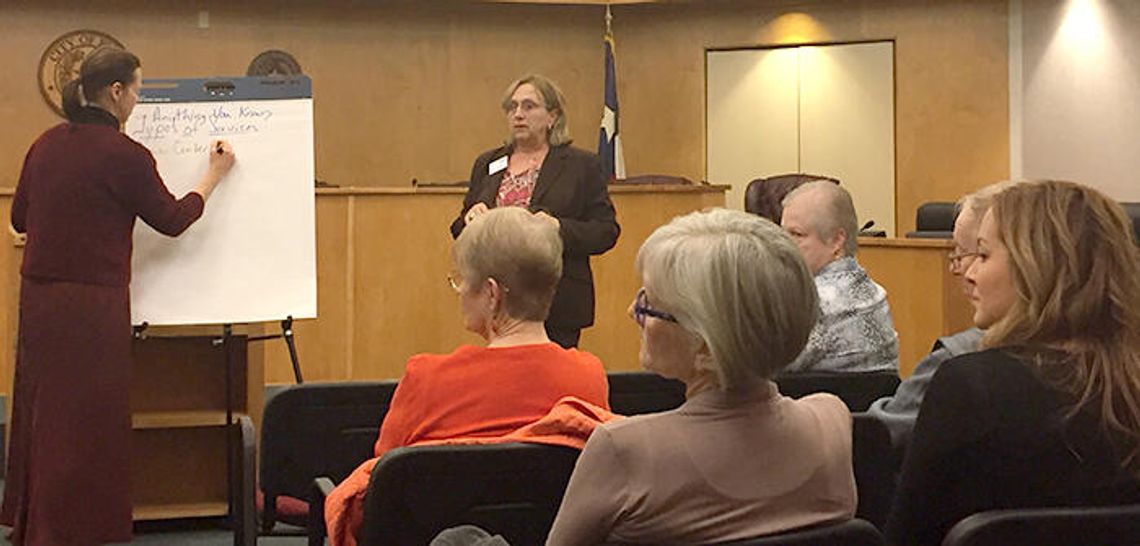As Buda’s population grows, city officials are assessing the best way to provide services to all Buda residents, primarily the aging population.
Older Buda residents took to city hall Jan. 25 to voice concerns, as well as offer solutions in assisting the aging population at the first Buda Aging Focus group.
Buda Human Resources Director Kristen Williams presented the idea of hosting an aging focus group to council members at the November 15, 2016 when Patty Bordie, the Director of the Area Agency on Aging (AAA), discussed the importance of senior connectivity in a community.
Bordie returned to assist in the focus group, which centered on the AAA’s mission to discover what older adults and their caregivers need in a community and craft a plan to support them.
The purpose of Buda’s focus group was to find out “what is available for seniors today, what do people think about the services that we do have and what’s missing, what could we add to make this a more livable community,” Bordie said.
Bordie citied 2016 data regarding the growing aging population in Buda, as well as the growing number of families caring for older adults in need of an “age friendly” community.
Residents listed resources already available such as the Onion Creek Senior Citizens center on FM 2770, the free senior transportation program that runs on limited hours during the week, and senior resources links on the city website.
Other resources identified were Sodalis, a dementia and Alzheimer’s resource center, and the Hays Communities YMCA in Buda, which will be offering memberships through Silver Sneakers soon.
Residents identified multiple resources available to caregivers like temporary respite care at Silverado and other assisted living communities, as well as Care-Giver Café online, where caregivers can access immediate resources they need as well as caregiver support groups available through the Alzheimer’s group and others.
“The VFW is opening soon in Buda,” said one resident in attendance regarding additional resources for aging adults and their caregivers.
One contentious point of interest was the accessibility of resources for aging adults. One universal question was “Where can I go to get that information?”
Answers varied from finding resources online at various websites, to the newspaper, email or U.S. Postal mail-outs and smart phone apps like Next Door.
More on-demand, specialized transportation for those who are unable to attend doctor’s appointments, social events or the grocery store was also a concern that was identified.
“Everyday we have activities going on at the Senior Center, but we have issues getting seniors over there,” one resident said.
The transportation issue arose again when discussing barriers to services, as well as a lack of communication and social contact. The group also stressed the need for programs that allow seniors to give back to the community in the form of volunteer work.
“We need to be able to give the things that we can offer like knowledge of special skills like sewing and cooking to have that connection with younger people in the community,” one resident said.
Bordie addressed the collective concern that even with all the resources in the world, unless they were all accessible in the same place, seniors would still have barriers to services.
“This year, we are making an effort to visit all of the Senior Centers in the area and pass out literature relating to senior resources,” Bordie said.
Other areas of concern included ADA services at businesses, enough handicapped parking at stores like HEB, rising tax rates on a limited budget and local healthcare options.












